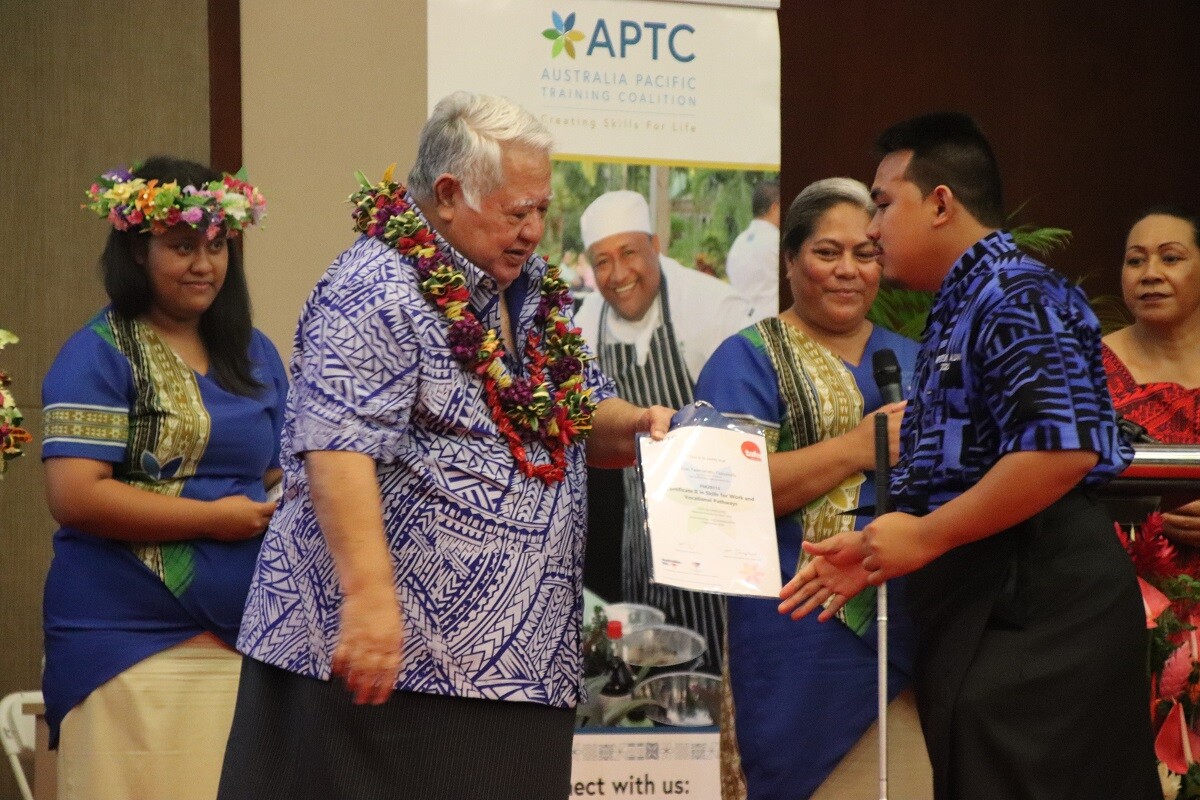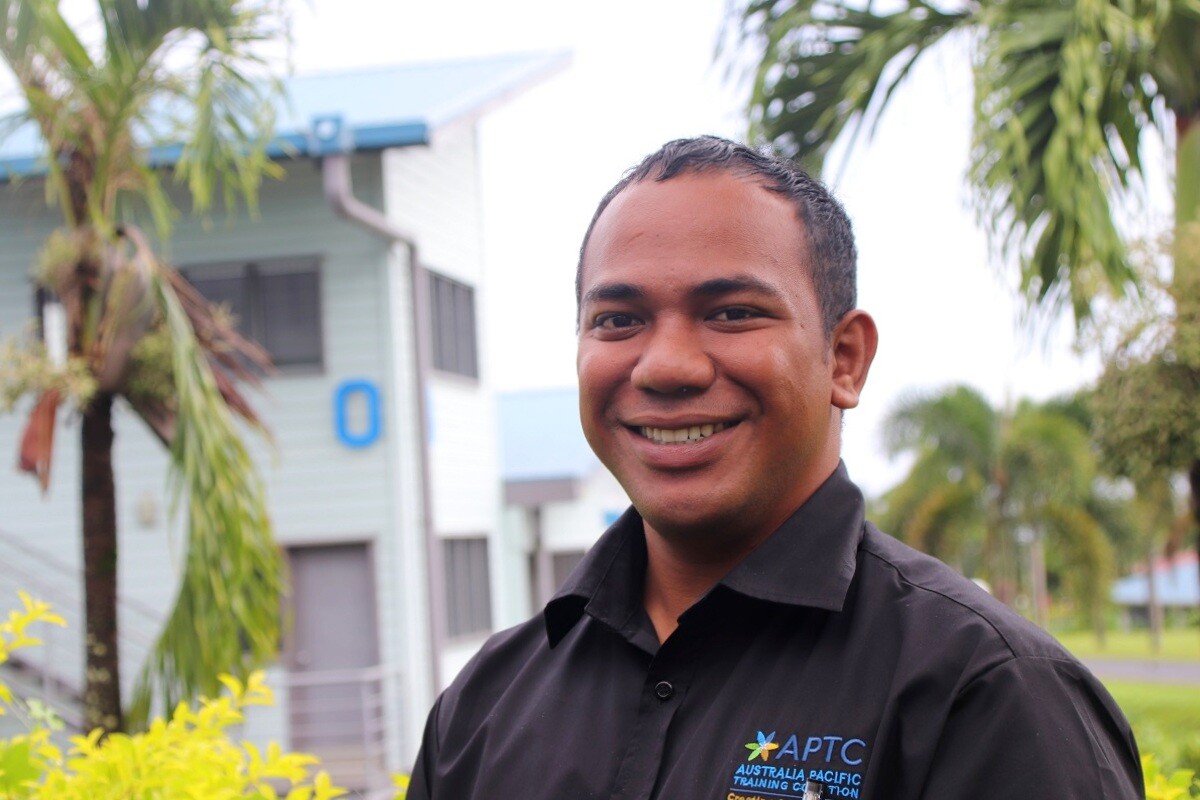APTC and NOLA collaborate for skills development and disability rights in Samoa
The Australia Pacific Training Coalition (APTC) and Samoa’s national disability advocacy organisation Nuanua O le Alofa (NOLA) held a workshop recently aimed at establishing a partnership to support disability awareness and access to training for people with disabilities.
NOLA has championed equal access for persons with disabilities since its inception in 2001 and the workshop highlighted the potential for this collaboration to see Technical and Vocational Education and Training (TVET) being leveraged to progress NOLA’s work.
During the workshop, APTC’s Samoa and Tonga Country Office staff heard from NOLA representatives about the challenges and experiences in their efforts in disability rights, accessibility and inclusivity.
Samoa Deaf Association president, Josefa Sokovagone, said communication was one of the many challenges that persons with intellectual, sensory and physical disabilities face.
Speaking through a sign interpreter, Mr Sokovagone explained how consideration, accessibility and inclusivity were vital.
“Deaf Samoa is entitled to the same rights as any other Samoan. When information is not provided through sign language, deaf people are not able to participate in society. Confusion, misunderstanding and, sometimes, personal safety is threatened,” he said.
Besides the need for sign language and interpreters for equal access to take place, he also explained that considerations such as eye contact, gestures and facial expressions would go a long way in supporting communication with those living with a hearing impairment.
NOLA’s Organizational Management Mentor, Annika Tierney, highlighted that acknowledging and consulting individuals themselves was important.
Suiria Apulu, one of NOLA’s inspirational committee members, shared her personal experiences of how people’s perceptions reflected limitations in understanding persons with disabilities.
“People’s attitudes towards me are sometimes determined by my physical disability. Catching the bus one day, I was told that I should stay home home because I was ‘sick’,” Ms Apulu added.
She stressed the need for a change in people’s mindsets and attitudes towards people with disabilities.
“More so than infrastructure and logistical considerations, people’s attitudes need to change. People living with disabilities are capable individuals, who with kindness, empathy and understanding can be better supported and included,” Ms Apulu explained.
APTC’s Student Support and Welfare Officer, Patrick Gordon, in expressing his appreciation for NOLA, said that “inclusivity for our brothers and sisters living with disabilities is a collective responsibility”.
Keleni Hopati, a Training Assistant for APTC’s Hospitality program, also thanked NOLA for the work it does, and acknowledged a need for more awareness on issues relating to people with disabilities.
“There needs to be more awareness and education about what resources and assistance persons with disabilities need. They are entitled to the same rights as everyone, and everyone must be made aware of how to support them in accessing those rights,” Mr Hopati said.
The APTC Samoa Country Office will continue to engage with NOLA to identify means of supporting and collaborating meaningfully with the advocacy organisation.
You May Also Like
These Related Stories
APTC and NOLA continue to work towards promoting inclusive training and employment outcomes

Over 70 Samoans graduate from APTC
